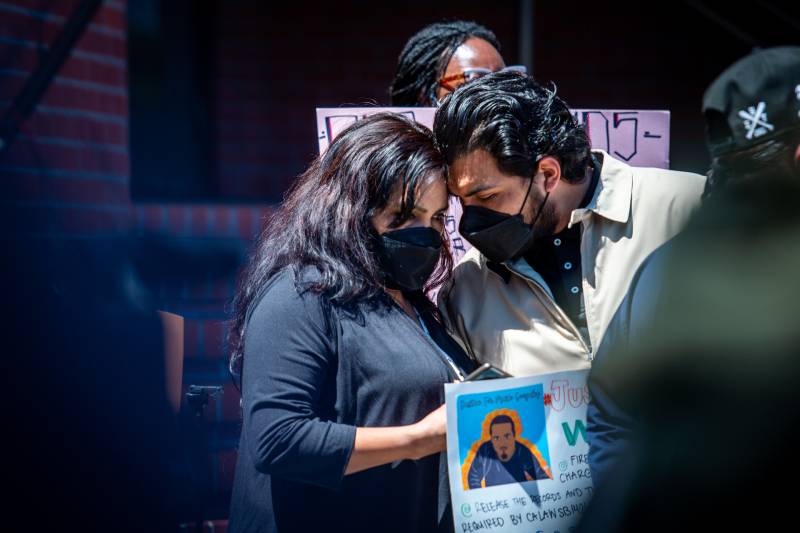An autopsy performed by the Alameda County coroner (PDF), and released nearly eight months after the incident, classified Gonzalez’s death as a homicide, but identified the “toxic effects of methamphetamine” as the leading cause of his fatal cardiac arrest. A subsequent independent autopsy, requested by Haddad’s firm, also classified Gonzalez’s death as a homicide, but concluded he died from “restraint asphyxiation.”
“This didn’t need to happen. And this is the result,” Haddad said of Gonzalez’s death, an incident that sparked fierce local protests and drew comparisons to the murder of George Floyd in Minneapolis the previous year.
“This was a really egregious case of police misconduct, a violation of the officers’ own training and well-known law enforcement standards to avoid asphyxiating people after they’re handcuffed,” he added. “I wish this would be the last asphyxial death we ever hear of.”
Nearly a year after Gonzalez’s death, former Alameda County District Attorney Nancy O’Malley declined to prosecute the three officers, concluding they had acted reasonably in detaining and arresting him and were not “criminally liable.”
Shortly after taking office earlier this year, Pamela Price, O’Malley’s more progressive successor, listed the case as one of the many officer-involved incidents she intended to reopen and investigate, although her office has yet to announce any new criminal charges.
“I think that this does put the onus on [Price] now to say what she’s going to do,” Haddad said, “given the extremely large settlement which reflects on the egregiousness of what the officers did.”
KQED’s Tara Siler contributed to this story.

